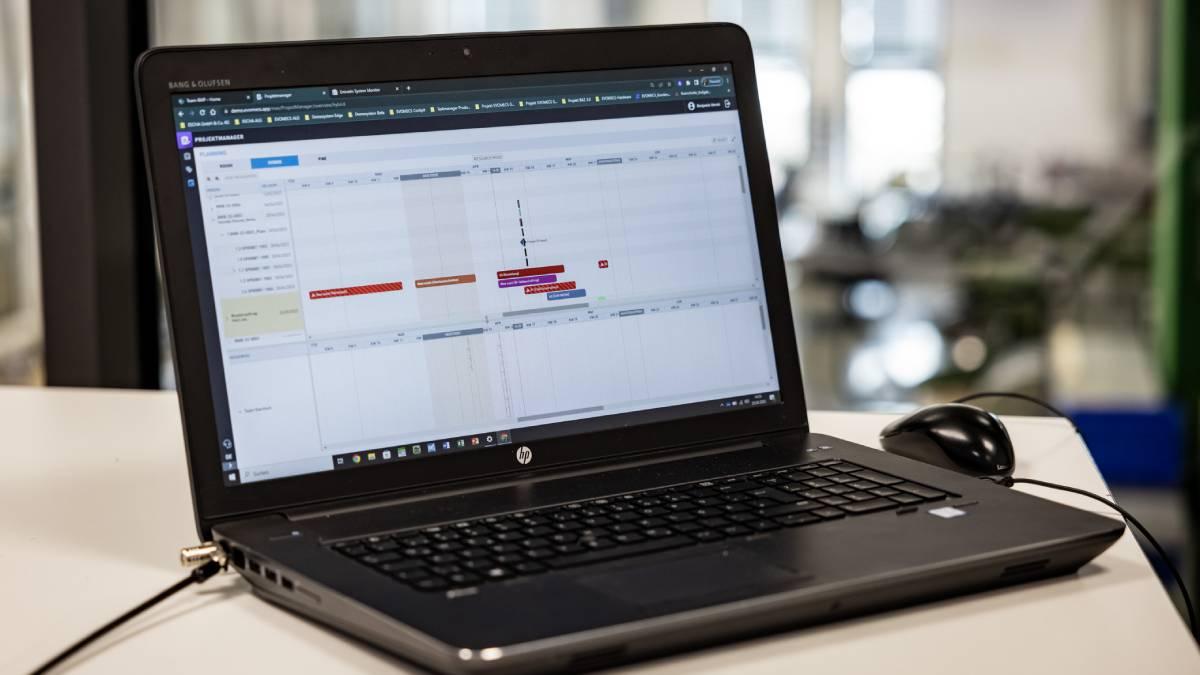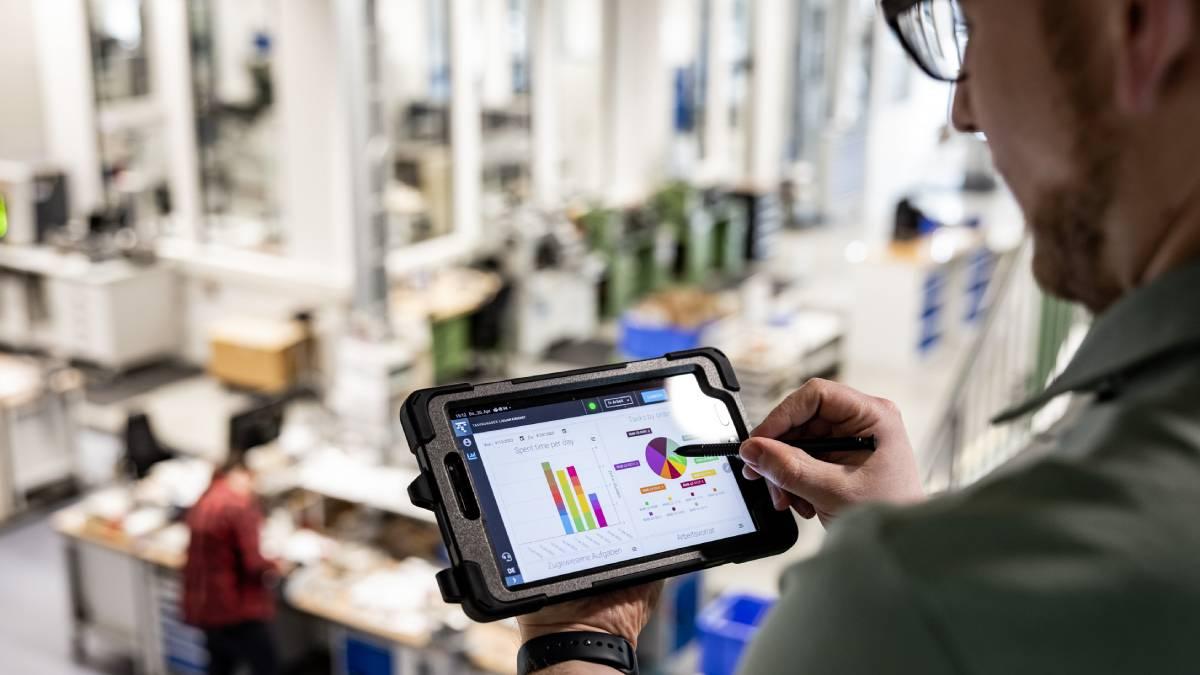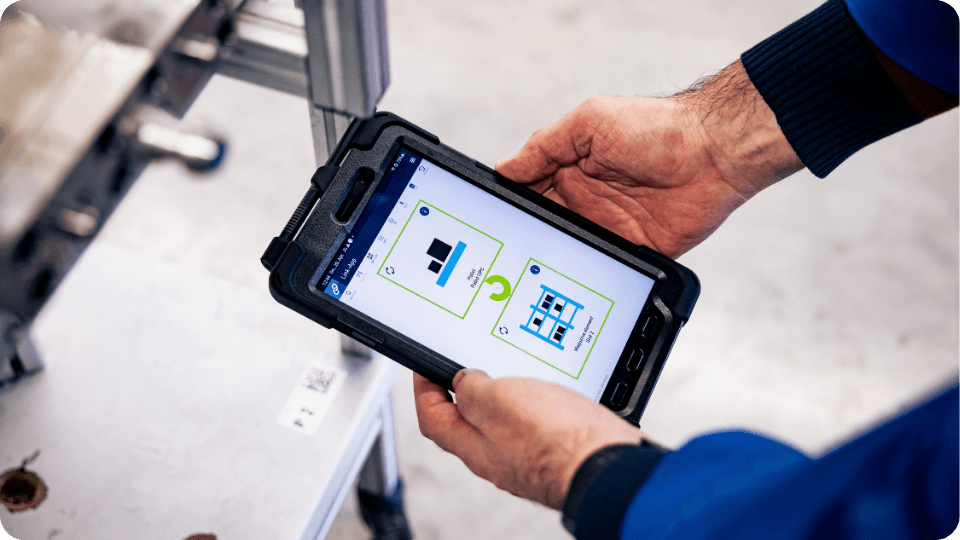ERP vs. MES

In a world where digitalization in the manufacturing industry is not just a buzzword, but a necessity, production companies are faced with a crucial question: Is an ERP system enough for digitalization, or is the use of an MES (Manufacturing Execution System) essential? The short answer: without an advanced MES, you won't be able to realize the true potential of your production digitalization. But let's dig deeper.
What's the difference?
ERP (Enterprise Resource Planning) systems are the backbone of many companies and support various areas such as finance, HR, sales and, in some cases, production. Their main goal? To manage a company's resources efficiently. Sounds comprehensive, but here's the catch: ERP systems often have a bird's eye view of production, without the granular details needed for effective production control.
MES (Manufacturing Execution System) systems, on the other hand, are the direct conductors of production processes. They take over fine control on the store floor: from detailed planning of production processes to quality management and performance analysis of individual machines and workstations. An MES works in real time and ensures that production is not only planned but also optimized.
Why is an ERP alone not enough?
An ERP system may be an excellent tool for general business management, but it reaches its limits when it comes to the specific challenges of production. Here are some reasons why:
- Detailed planning and control of production: MES systems enable much more detailed planning and control of production processes than ERP systems. They not only take into account the availability of materials and resources, but also the specific requirements of each individual production line and machine. This is particularly important in single-part production, where each batch may have different requirements.
- Direct machine integration: An MES offers direct interfaces to production machines and systems. This integration makes it possible to collect and analyze machine data in real time, which is crucial for preventive maintenance, fault diagnosis and the optimization of production processes. ERP systems usually do not offer such direct integration.
- Human-machine interaction: MES systems facilitate interaction between production workers and machines. They provide user interfaces that allow operators to monitor and adjust processes and intervene quickly when necessary. This type of interactivity goes far beyond the capabilities of an ERP system.
- Advanced reporting and analytics: While ERP systems provide comprehensive reports on business processes and financials, MES systems provide specialized reports and analytics focused on optimizing production. These include performance analysis, lead times, quality reports and much more, which is essential for continuous improvement.
- Support for lean manufacturing and continuous improvement: MES systems support lean management principles and continuous improvement processes through detailed data collection and analysis of production processes. They enable the identification of waste, the optimization of workflows and the efficient use of resources, which is difficult to achieve with an ERP system alone.
- Quality management: MES systems, especially those from EVOMECS, integrate quality management directly into the production process, which saves an enormous amount of time and enables valuable subsequent evaluations.

The EVOMECS Software Suite: A holistic digitalization system
The EVOMECS MES is not only an advanced tool for digitizing your production processes, but also part of the comprehensive EVOMECS Software Suite. This suite supplements the MES with key components that enable a holistic digitalization strategy:
- Tool management: managing all milling tools in real time is crucial for efficient production. Our tool management system ensures that you always have an overview and can use them optimally.
- Job management: For the control of standalone machines and automated systems, our job management component offers the flexibility and efficiency that modern production environments require.
Together, these components form a truly holistic digitization system designed specifically for the needs of small manufacturing companies and practitioners. With EVOMECS, you don't just get a tool, you get a comprehensive solution that revolutionizes your production processes.
What do we learn from this?
The choice between an ERP and an MES system should not be an either-or question. Both systems play a crucial role in the modern manufacturing landscape. However, it is clear that for companies that want to be at the forefront of digitalization, an advanced MES system like the one from EVOMECS is essential. An ERP system lays the foundation, but only an MES enables a complete and sustainable digitalization strategy in production.
The data architecture of EVOMECS is fully adapted to ERP logic (keyword: article structure), so links between ERP systems and EVOMECSare relatively simple. In some areas, EVOMECS can even take over ERP tasks thanks to this architecture, which is why an ERP system is not even absolutely necessary in individual cases - not least thanks to the extension of the system with the fully integrated planning module.
Ready to take the next step towards more efficient, digitalized production? Discover what EVOMECS can do for you.


